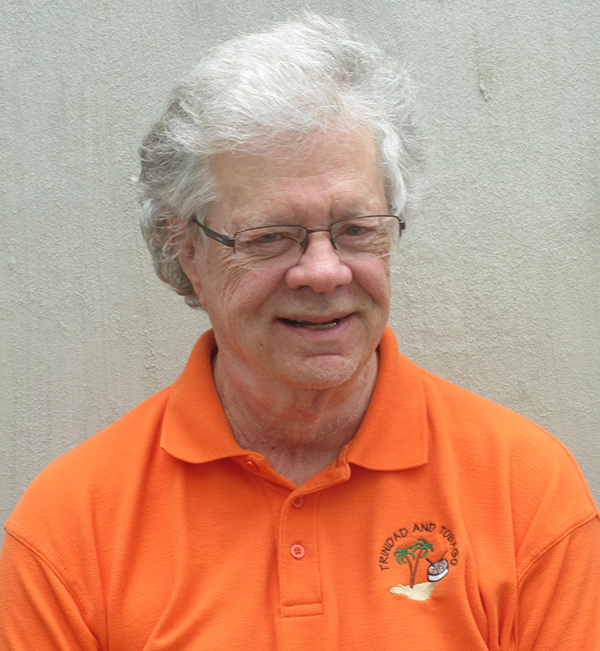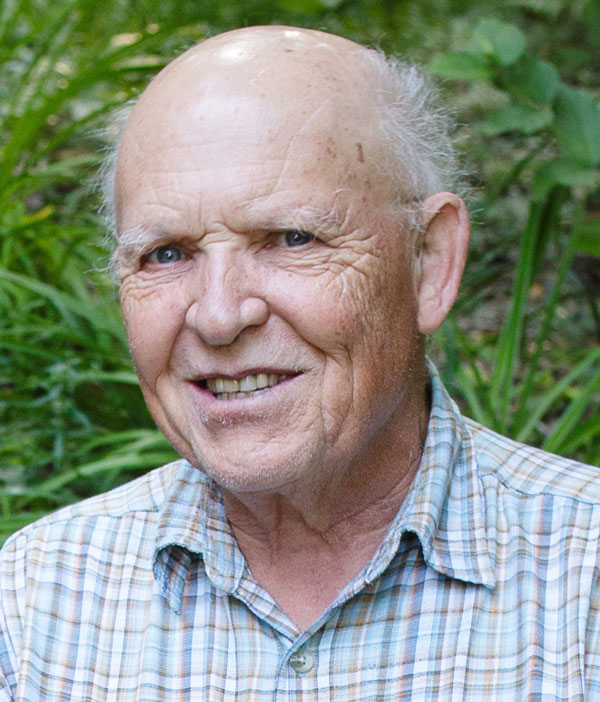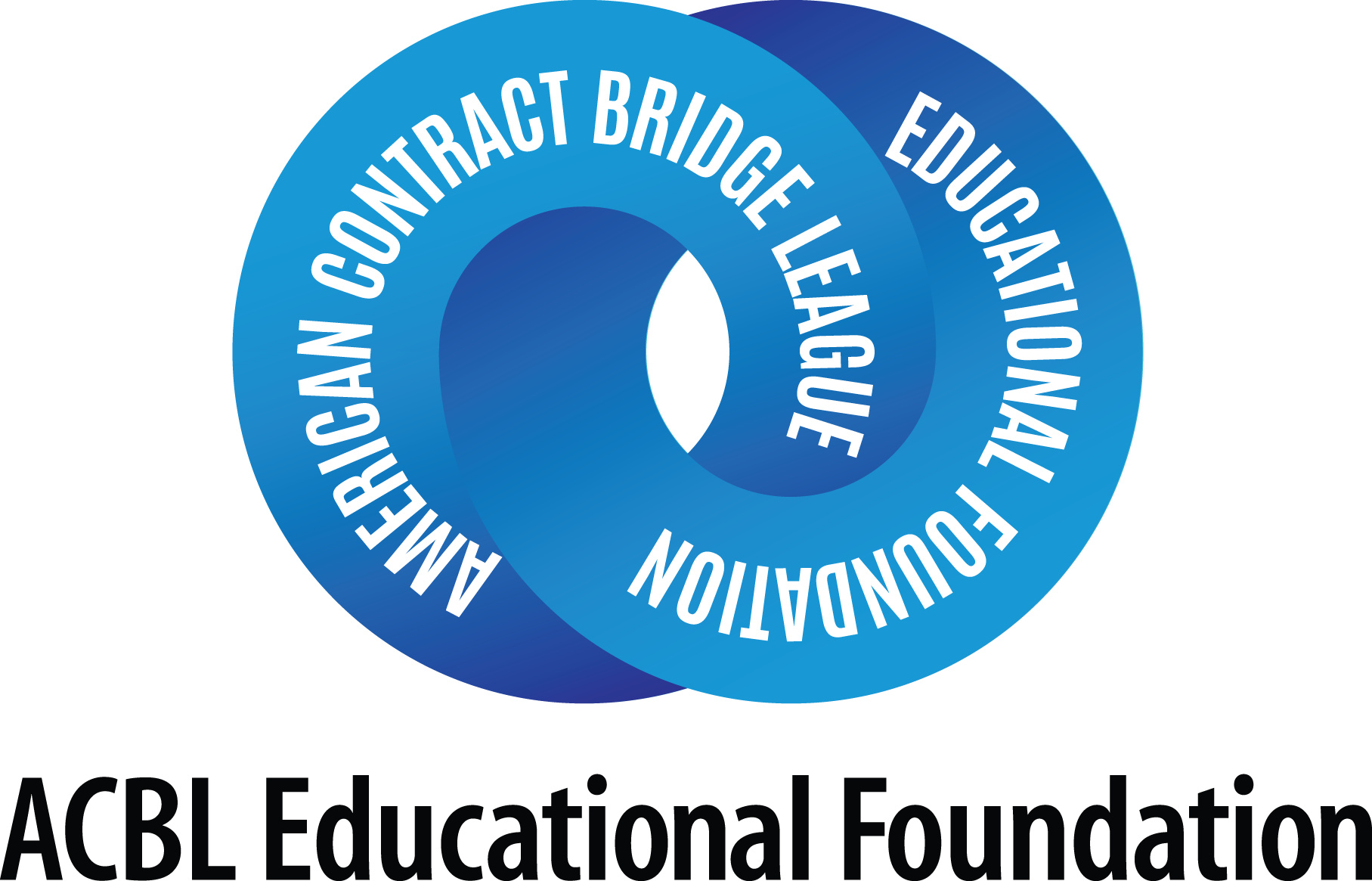
Mike Lawrence -- Common Sense at an Early Age
 In the first bridge hand that Mike Lawrence found remarkable enough to remember, the holding was seven hearts to the ace, king, queen, jack, ten, six, five with three doubletons that included a smattering of royals. He was five years old and sitting on his mother's lap, across from his father, and waiting for the neighbors to get there for the usual foursome.
In the first bridge hand that Mike Lawrence found remarkable enough to remember, the holding was seven hearts to the ace, king, queen, jack, ten, six, five with three doubletons that included a smattering of royals. He was five years old and sitting on his mother's lap, across from his father, and waiting for the neighbors to get there for the usual foursome.
“I opened with three hearts,” he said, “thinking that if one heart showed twelve points, I had enough to bid three. Mom explained that this was a weak bid.
“Time ran out and our neighbors arrived. I went to bed.”
In the succeeding 76 years, Lawrence has played hundreds of thousands of hands en route to being a three-time world champion (as part of the Dallas Aces team that in 1970 won the Bermuda Bowl that the Italian Blue Squad had held for a decade), a prolific author of bridge books (22 and counting) and a highly valued teacher. Readers of the ACBL Bulletin know him through his monthly columns, which, like his books, emphasize logic and card sense above fancy conventions.
The Aces founder, Ira Corn, wasn't the first to recognize Mike's writing skills; he had won a $10 prize in his high school's short story contest. But the Dallas businessman had asked each of the team's players to try their hands at the relatively short form of bridge columns to syndicate to newspapers. Corn said Lawrence's were the best.
Mike moved on from bridge columns to books – 22 and more to come. His first and, he says, one of the ones that had great impact was How to Read Your Opponents' Cards. It deals with a vital topic that other book authors had bypassed, and its reception encouraged him to explore other overlooked elements of the game such as false carding, combinations, and the widely admired Balancing. Throughout his work, he has emphasized the importance of judgment over rote play.
More recently, he branched out to offer interactive learning through compact discs that let users decide on a line of play and then see the results. The discs explore topics like counting and defense as well as an in-depth examination of virtually all the conventions the ACBL allows. (The books and CDs are all available through his website.) Recent events have nudged him into a low-key presence teaching one or two players on BBO.
He has found time for writing apart from bridge, including a full-fledged science-fiction novel. He is also an artist specializing in abstract figures that fold back on themselves in complex layers and contrasting colors.
Lawrence, in isolation in his home just south of Nashville, worries about the future of bridge but not because of the coronavirus pandemic that has shuttered the clubs and forced the cancellation of sectional, regional, and national tournaments. Face-to-face play will resume in time as clubs reopen and tournaments resume because “it's one of the attractions,” he said.
“The personal element is missing now,” he said. “A loss.” Despite the vast influx of players using BridgeBaseOnline or Trickster Bridge or other sites for virtual play, he said, “It's not the same online.”
What worries him most is the problem of dealing effectively with high-level cheating, the kind that has been revealed dramatically in the last few years with the exposure of the “coughing” doctors as well as the Fantoni/Nunes and Fischer/Schwartz scandals. Under pressure from adverse civil court decisions, the international bridge authorities have reinstated players it had barred because of cheating.
His point was reinforced recently when BBO had to issue a special warning against virtual partners who talk to each other by phone or Facetime while they are playing. And he approved of ACBL's willingness to draw attention to the problems by making it the cover story of the July Bridge Bulletin.
Reflecting on his early career, he related an event that gave him a new direction in life. He had grown up in San Francisco and went to college at the University of California-Berkley. One day in a chemistry lab, his experiment went badly awry; a compound he had created exploded in his hand.
He was obliged to curtail his studies for six weeks. Happily for his thousands of students, readers and partners, he spent those hours learning bridge in Stephen’s Hall.
Read more from our First Hands series here.

By Jonathan Friendly
Do you have an interesting story to share about how you started playing bridge?
Please provide a few details and your contact information here so we can follow up with you.
We'd love to hear about your experience and may feature it here within our First Hands series.
